25 die in Afghan anti-NATO protest and suicide blast
2,000 people took to the streets of Taloqan, protesting against the deadly NATO raid.
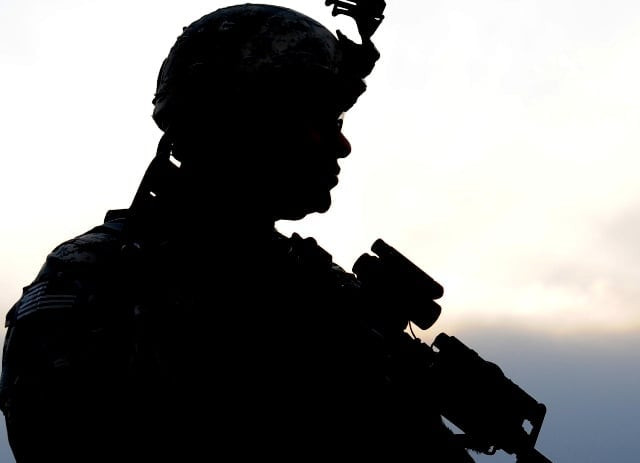
Those killed in the protests in Taloqan, capital of the northeastern province of Takhar, were mainly civilians, while police trainers and cadets died when a bomber drove his car into a police bus near Jalalabad, eastern Afghanistan.
The NATO raid that led to the demonstrations in usually peaceful Takhar saw President Hamid Karzai demanding an explanation of what happened from the US commander of troops in Afghanistan, General David Petraeus.
Police opened fire as 2,000 people, some throwing rocks at a foreign military and civilian reconstruction base, took to the streets of Taloqan.
More than 50 people, including two German soldiers, were also wounded in the troubles that broke out after NATO-led forces said they killed four insurgents, including two armed women, during an overnight raid in the town.
A spokesman for the International Security Assistance Force (ISAF) said the raid targeted the Islamic Movement of Uzbekistan (IMU), a militant group that operates from bases including in Afghanistan.
But the protesters and the Western-backed Karzai administration said those killed during the operation were civilians.
Karzai, who frequently denounces foreign military operations that he says kill too many Afghan civilians, also "strongly condemned" the raid.
Karzai would demand an explanation of what happened from General David Petraeus, the US commander of troops in Afghanistan, his office said.
"The government of Afghanistan has a duty to assess the circumstances of the deaths of these individuals and demand an explanation from the commander of the NATO (in Afghanistan)," it said.
Karzai again called for an end to "unilateral" military operations by foreign forces in Afghanistan. ISAF had said earlier that the operation was conducted alongside Afghan forces.
ISAF spokesman Lieutenant Colonel John Dorrian said he had no immediate comment on Karzai's remarks.
During the Taloqan protest, demonstrators threw rocks at the Provincial Advisory Team compound, interior ministry spokesman Zemerai Bashary told AFP.
The local PAT is a German-led group of soldiers and civilians working to help Afghan government institutions improve their performance.
The two wounded soldiers did not sustain life threatening injuries, the German defence ministry said.
"We have 11 dead and over 50 other people admitted with injuries to hospital," acting provincial health director Hassan Basij told AFP.
It was not immediately clear whether the casualties were shot by the police or other gunmen.
Two German soldiers were also injured in the disturbances, the country's contingent in Afghanistan said, but did not give details on how badly they were hurt, how they were injured and whether they had intervened in the violence.
Lal Mohammad Ahmadzai, a regional police spokesman, accused "some opportunists and violence-seeking elements" of infiltrating the protests.
At the interior ministry in Kabul, spokesman Bashary told AFP: "There have been demonstrations, about 2,000 have demonstrated over the operation overnight. The demonstrations have turned violent."
Although relatively peaceful compared to Taliban strongholds in the south, the north of Afghanistan has seen an increase in violence in recent years.
Seven UN staff were killed when their compound in the northern city of Mazar-i-Sharif was stormed during a protest against the burning of the Koran by an evangelical pastor in the United States.
Afghan and NATO forces have said that central Asian militant groups such as the IMU are active in the region.
ISAF said the operation against the house in Taloqan that triggered the protests targeted a key facilitator for the IMU who was involved in procuring and making weapons and explosives in the area.
It said it was a joint operation with Afghan forces and that weapons including a suicide vest and an AK-47 assault rifle were found at the scene.
All US-led international combat troops are due to withdraw from Afghanistan by 2014 although this month's killing of al Qaeda leader Osama bin Laden by US troops in Pakistan has led to calls for this process to be speeded up.
Control of seven more peaceful Afghan areas is due to be handed to the fast-growing Afghan military and police from July.
There are currently around 130,000 international troops, the majority from the United States, stationed in Afghanistan.

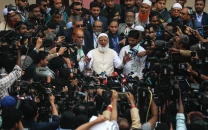

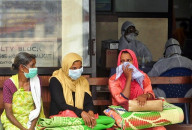
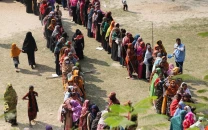

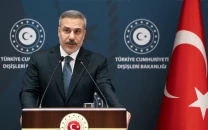












COMMENTS
Comments are moderated and generally will be posted if they are on-topic and not abusive.
For more information, please see our Comments FAQ